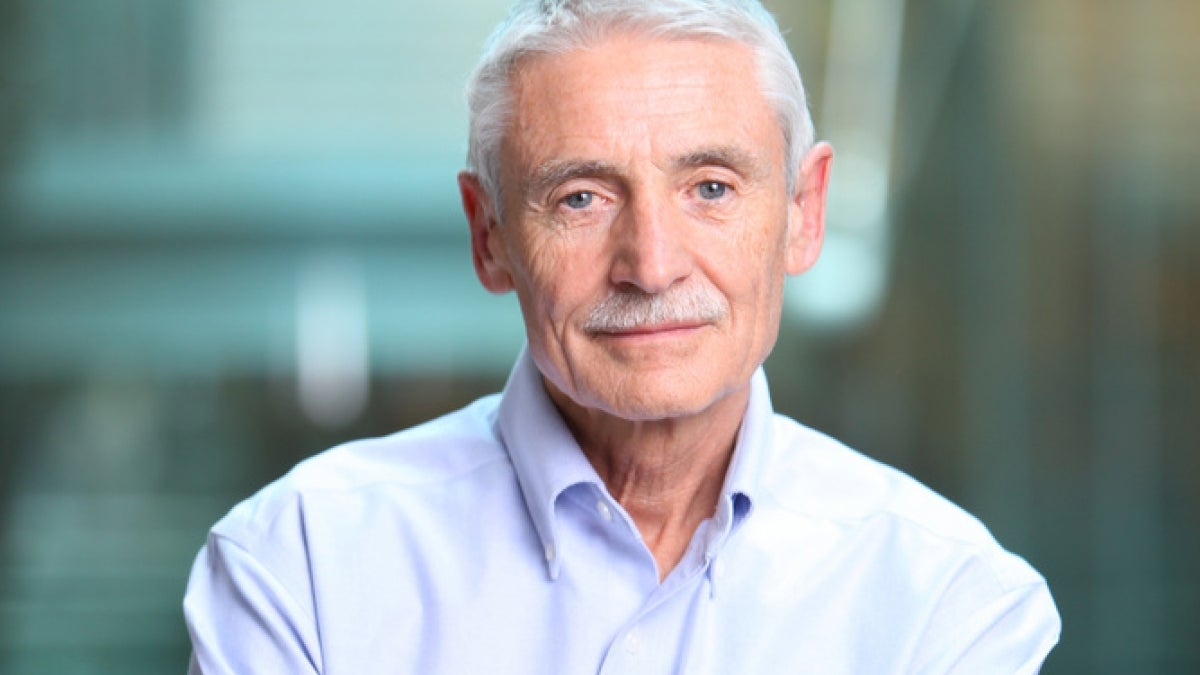Nobel laureate Leland Hartwell joins Barrett, The Honors College faculty

Nobel laureate Leland Hartwell will join the full-time faculty of Barrett, The Honors College at ASU in August.
Nobel laureate Leland Hartwell will join the faculty of Barrett, The Honors College at Arizona State University in August, making Barrett the only honors college in the nation with a Nobel Prize recipient teaching undergraduates full time.
Hartwell, a noted medical researcher, won the Nobel Prize in Physiology or Medicine in 2001 along with Paul Nurse and Tim Hunt for their discovery of protein molecules that control the division of cells.
Hartwell has taught courses in Barrett as well as the School of Life Sciences and School of Sustainability at ASU for several years, said Barrett Vice Dean Nicola Foote. His teaching appointment has now changed so he can work exclusively with honors students.
“We will be the only honors college in the nation to have a Nobel laureate on our full-time faculty," Foote said. "This means that our students have the unique opportunity to work with a scholar who has completely transformed the boundaries of human knowledge and to learn from him about how to question, create and innovate. I can’t imagine a better learning opportunity for undergraduate students.”
Hartwell will have the title of honors professor and teach an applied research course where students learn how to craft research questions and design experiments to test their hypotheses, Foote said.
Hartwell’s course in fall 2019 will focus on research and experiments to learn more about the human senses. Honors students from any major, and as early in their first year in the university, can sign up for the course.
Hartwell said his courses will change in focus from semester to semester, but all will challenge students to be self-directed learners and researchers.
“Basically, I try to teach students how to be independent learners," Hartwell said. "Typically, each student has their own project and I mentor them through it. I have taught courses in student success, global health and human sensory vision. Fall semester I am teaching a course in human sensory hearing. Each student will formulate a question of interest to them and then design and implement an experiment to try to answer their question."
Hartwell said he is looking forward to working exclusively with honors students.
“My experience with honors students has been terrific. They are generally enthusiastic and dedicated,” he said.
In addition to the Nobel Prize, Hartwell has received other recognition for his groundbreaking work.
He was given the Albert Lasker Basic Medical Research Award in 1998, which is awarded for a fundamental discovery that opens up a new area of biomedical science; the Gairdner Foundation International Award in 1992 for outstanding discoveries or contributions to medical science; the Alfred P. Sloan Award in cancer research in 1991, and the Genetics Society Medal of Honor.
Hartwell was the president and director of the Fred Hutchinson Cancer Research Center from 1997 to 2010, when he left to join the ASU faculty. Since 2014, he has taught special topics and directed honors studies in sustainability, biomedical engineering, biology and computer science.
Over the years, he has had appointments in the schools of education, biomedical engineering and sustainability and led a small team that developed and taught a course, Sustainability Science, for pre-service K-8 teachers. He also led the HoneyBee program at ASU, overseeing a series of small clinical trials using wearable devices to monitor physiological parameters in clinical patients for a variety of diseases.
Read more about Hartwell’s research and work with honors students.
Ranjani Venkatakrishnan, a Barrett, The Honors College student majoring in journalism, contributed to this story.
More Health and medicine
Is ‘U-shaped happiness’ universal?
A theory that’s been around for more than a decade describes a person’s subjective well-being — or “happiness” — as having a U-…
College of Health Solutions medical nutrition student aims to give back to her Navajo community
As Miss Navajo Nation, Amy N. Begaye worked to improve lives in her community by raising awareness about STEM education and…

Linguistics work could improve doctor-patient communications in Philippines, beyond
When Peter Torres traveled to Mapúa University in the Philippines over the summer, he was shocked to see a billboard promoting…